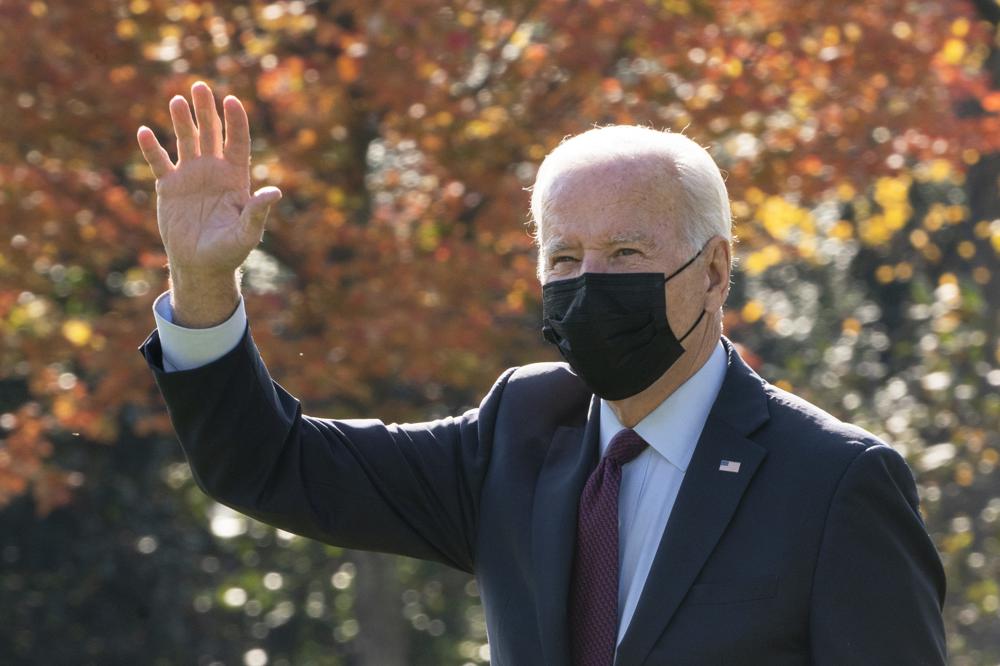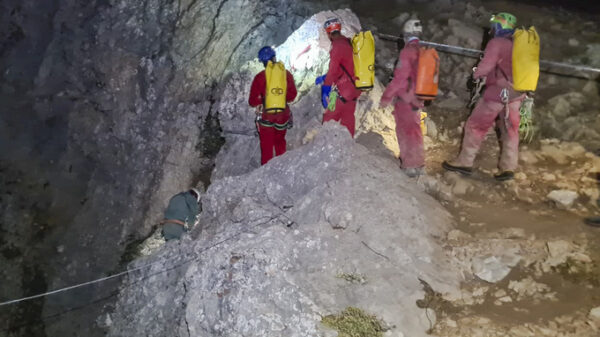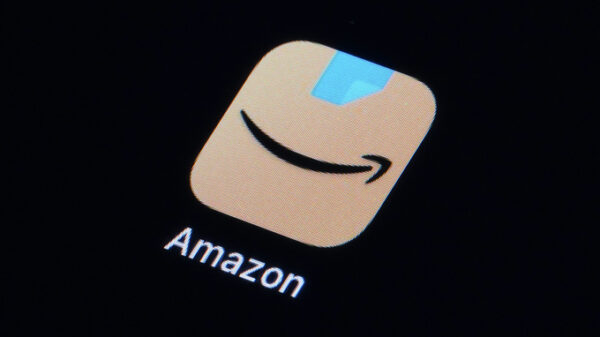President Joe Biden waves towards the White House balcony as he leaves the White House, Wednesday, Nov. 17, 2021 in Washington, to visit General Motors’ electric vehicle assembly plant in Detroit. (AP Photo/Manuel Balce Ceneta)
WASHINGTON (AP) — North America’s leaders are reviving three-way summitry after a Trump-era break.
As President Joe Biden, Canadian Prime Minister Justin Trudeau and Mexican President Andrés Manuel López Obrador resume the tradition of the North America Leaders’ Summit on Thursday, the three allies face deep differences on migration, climate and trade.
There’s “not that much in common between them, at least in their vision for what they want for their countries,” said Kenneth Frankel, president of the Canadian Council for the Americas. “Not just what they want for their countries, but what they can deliver for their countries.”
Thursday’s meetings at the White House will be the first trilateral get-together for North American leaders since a June 2016 gathering of Trudeau, Barack Obama and Enrique Peña Nieto in Ottawa. The gatherings took a hiatus under President Donald Trump, who feuded with Trudeau and Nieto during his tenure.
Biden has made some progress in repairing relations with U.S. neighbors after the turbulent Trump years. But many significant strains remain — and some new ones have emerged.
Trudeau arrived in Washington with concerns about buy-American provisions in the president’s proposed $1.85 trillion social services plan. Mexico’s priorities heading into the summit were to obtain concrete advances on immigration and more equitable access to COVID-19 vaccines.
The tradition of three-way meetings started when George W. Bush played host to Mexico’s Vicente Fox and Canada’s Paul Martin in 2005 for talks at his ranch in Waco, Texas.
Biden has already held separate virtual meetings with Trudeau in February and López Obrador in March.
Biden will meet separately with Trudeau and López Obrador again on Thursday before the leaders hold a trilateral session in the midst of what is a big week for the U.S. president. Biden signed a $1 trillion infrastructure bill into law Monday, held a virtual summit with China’s Xi Jinping that night, and traveled over the next two days to promote provisions in the big spending deal. He’s also trying to push through his social services and climate spending plan.
There are growing concerns in Canada about a provision in the spending plan that would offer U.S. consumers a $7,500 tax credit if they buy electric vehicles through 2026. The following year, only purchases of electric vehicles made in the U.S. would qualify for the credit. The base credit would go up by $4,500 if the vehicle was made at a U.S. plant that operates under a union-negotiated collective bargaining agreement.
Canadian Deputy Prime Minister Chrystia Freeland called the incentive a clear violation of an updated trade agreemen t among the three countries that aimed to protect U.S. jobs and products made in North America. Trudeau, Freeland and other Canadian ministers met with U.S. officials on Capitol Hill on Wednesday. And Canadian Foreign Minister Melanie Joly said she raised concerns about the electric vehicle provision with Secretary of State Antony Blinken last week.
Freeland said that for Canada, “Job one here in the U.S. this week is to really make our American counterparts aware of the extent to which their current approach to this issue is a problem for Canada and to really explain to them that the way they have formulated this incentive really, really has the potential to become the dominant issue in our bilateral relationship.”
White House spokesman Chris Meagher said the electric vehicle tax incentives are an essential part of Biden’s push to link efforts to curb climate emissions with job creation in the U.S.
The U.S. and Canada, meanwhile, have expressed frustration that López Obrador has failed to get on board with global efforts to curb climate emissions. The Mexican president skipped this month’s U.N. climate summit in Glasgow.
López Obrador’s government, for its part, wants promised U.S. development funds for the Northern Triangle countries of Central America to be firmed up. The Mexican leader continues to press the U.S. to fund an expansion of his tree planting program to Central America.
Mexico has worked with the United States — under both Trump and Biden — to control migrant flows and assist in returning migrants to Central America. The two countries are still negotiating the court-ordered re-implementation of a Trump-era policy known as Remain in Mexico, which forced asylum seekers to wait out their U.S. asylum process in Mexico.
López Obrador has also mentioned on multiple occasions his interest in the U.S. government expanding its temporary work visa program so more Mexicans and Central Americans can fill the demand for labor in the U.S. The temporary workers in turn could have access to the higher pay they seek in the U.S. without becoming part of the illegal immigration flow.
Arriving in Washington on Wednesday, Mexico Foreign Affairs Secretary Marcelo Ebrard said his government would focus on three issues: the pandemic, economic integration and immigration. On immigration, Ebrard said Mexico would try to rally support for two of López Obrador’s signature social programs — tree planting and youth job opportunities — to reduce the push factors of migration.
Ken Salazar, the U.S. ambassador to Mexico, recently expressed “serious concerns” about the Mexican government’s attempts to limit competition in the electrical power sector.
Trudeau and Biden are also expected to discuss the future of an oil pipeline that crosses part of the Great Lakes and is the subject of rising tension over whether it should be shut down. Biden is caught in a battle over Enbridge’s Line 5, a key segment of a pipeline network that carries Canadian oil across the U.S. Midwest.
Michigan Gov. Gretchen Whitmer, a Democrat and Biden ally, has demanded closure of the 68-year-old line because of the potential for a catastrophic rupture along a 4-mile section (6.4 kilometers) in the Straits of Mackinac, which connects Lake Huron and Lake Michigan. The Biden administration has not taken a position but is under increasing pressure to do so.
Canada last month invoked a 1977 treaty that guarantees the unimpeded transit of oil between the two nations.
Associated Press writer Colleen Long in Washington contributed to this report.
Copyright 2021 Associated Press. All rights reserved.










































